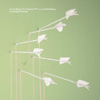|
As Clichéd as Rock
This Week: Madvillain’s inventive indie rap, Alanis’ wordy pop, and Modest Mouse’s pleasant death trip
Madvillain

Madvillainy (Stones Throw)
Almost 25 years into its acceptance as an established musical form, most hip hop has become every bit as clichéd as, hmm, rock? But in spite of the deluge of hackneyed gangsta poses and callow attempts to establish hardcore street cred, there remains an underground sound that is continually exciting.
The collaboration of rapper MF Doom (a.k.a. Viktor Vaughan and Zen love X, among other aliases) and mixer/turntablist Madlib is just what the doctor ordered. Madvillainy delivers an approach to hip hop that mirrors what Robert Pollard has always done with rock music. The pieces on the CD are remarkably short snippets of genius that vary in sound quality. Sometimes it seems that just as a musical idea is established the song is over. But nobody ever gets bored.
Studio whiz Madlib goes beyond the usual hip-hop beats by layering dublike loops that continually echo and interweave, confounding and compelling the listener. And MF Doom’s husky, sometimes self-depreciating raps are the perfect counterparts. Madvillany is about as far from the ubiquitous bling bling blather as you can get. And any rapper who references dick Dastardly & Mutley (villains from the early ’70s cartoon series, Wacky Racers) is A-OK in my book.
—John Sewell
Alanis Morissette

So-Called Chaos (Maverick)
Dear Alanis,
Jagged Little Pill was huge when I went away to school, and my friends and I put your songs on our mix tapes. In my celebrity-obsessed way, I’ve always thought, given the chance, that you and I would totally be friends.
It pisses me off that your new album’s not rocking my world. My expectations were high when I heard the first single, “Everything.” A quiet, shimmering song, it’s filled with the wonder that all-accepting love can bring. It’s the neurotic woman’s fervent wish—to be loved for all the light and the dark, to find someone who digs everything of which you’re ashamed. You sound like you’ve really found it, and I’m happy for you. I’m glad that you’re still messed-up, though. “Doth I Protest Too Much” finds you at your most lovably anxious. With its relentlessly catchy chorus, it’s an unflinching look at the darkness that can consume a woman in a relationship.
But too often your songs fall prey to your wordiness and weirdness. “Eight Easy Steps,” though easily the most energetic, grates with its harsh chorus and the even harsher way you beat yourself up. “Knees of my Bees,” an ode to your new love, has some of the most unintelligible lyrics ever heard. Maybe it’s the secret code language you and your boyfriend speak? All in all, the album is simply word-heavy and hook-light.
But, Alanis, you’re lovely, clever, and brave. Maybe what annoys me so much about this album is how much of myself I see in it. I’m going to give it some more spins. Can we still be friends?
—Laila Shahrokhi
Modest Mouse

Good News For People Who Love Bad News (Epic)
“I like songs about drifters/ Books about the same/ They both seem to make me feel a little less insane,” sings Isaac Brock, lead singer and lyricist of Modest Mouse, in its track “The World At Large.” In the 10 years of Mouse’s tottering existence, critics and music connoisseurs alike have clinked their glasses to feeling a little less insane in today’s sea of rock mediocrity. The Seattle-based group has stayed afloat by carving its niche in the same vein as offbeat peers The Flaming Lips and Radiohead. The band’s fourth album, Good News For People Who Love Bad News, is a glittering hope that inventive, sophisticated rock still has a thumping pulse. “Blame it On the Tetons” is perhaps the album’s most gorgeous song. Brock’s nebulous lyrics soothe as Tom Pelluso slides his fiddle bow slowly in and out of the song.
Because the band weathered the prospect of breaking up as former members ferried in and out of the band and lead singer Brock couldn’t seem to stay on the right side of the law, it’s not surprising that many songs on the album are chock full of raw anger over the death of a relationship. This band still aches to find its identity, as there’s little continuity on Good News. Mouse’s best quality is its propensity for poetic, philosophical lyrics that strike the brain like a match. The lyrics on Good News nurse an eerie obsession with death, and though the album’s title suggests a positive, poppy vibe, there’s still a lot of Mouse’s trademark desolation here.
—Ellen Mallernee

June 17, 2004 • Vol. 14, No. 25
© 2004 Metro Pulse
|
|